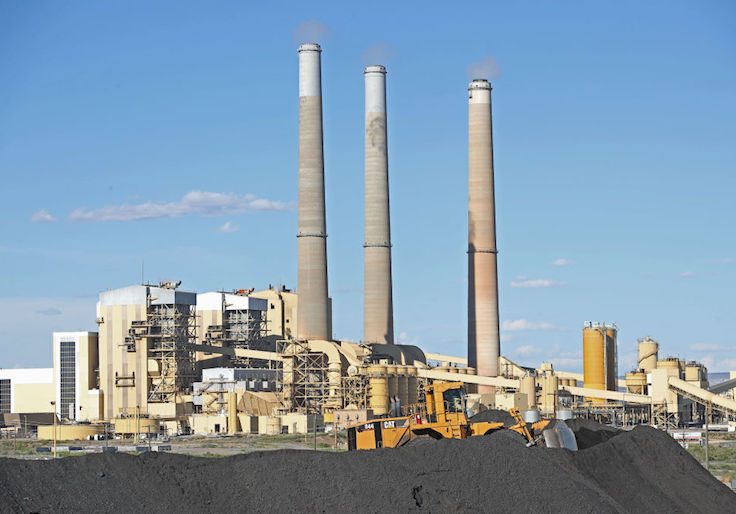A nonprofit science group was a major driver of a resolution passed at a meeting of the U.S. Conference of Mayors (USCM) supporting the right of cities to sue fossil fuel producers for damages related to climate change.
The resolution, which ultimately passed, opposes any action by federal or state governments to provide energy producers with immunity from liability lawsuits related to climate change, such as the lawsuits already emanating from California city governments such as Oakland and San Francisco.
Documents obtained by the Washington Free Beacon via California's Public Records Act show that the Union of Concerned Scientists (UCS) helped draft the resolution, marshaled speakers on its behalf, created strategy, and provided assistance on the scene at the Honolulu conference in late June and early July.
While the legal action comes under the government's imprimatur, the attorneys are third-party contractors working on a contingency fee basis, meaning they are only paid if the suits are successful and the courts reach a judgment against the energy producers.
Conservatives have argued such contingency fee arrangements with the state open the door for unchecked growth by the law enforcement arms of local governments.
The contingency fee attorneys, meanwhile, stand to reap millions in the event of a judgment in their favor. A Forbes article noted that the legal contract for Oakland provides for the attorneys to clear 23.5 percent of the "net recovery" in the event of a ruling that favors them.
Taken together, local governments suing energy producers are growing increasingly disassociated with the legal activity, as outside lawyers provide the legal work while auxiliary public relations battles—such as passing resolutions at quasi-governmental bodies like the USCM—are being organized and shepherded by a nonprofit.
The emails make clear that Mayor Tom Butt of Richmond, Calif., originated the resolution, but after starting the process, UCS latched on to the idea and ensured its success. Mayor Butt's suburb of San Francisco filed its lawsuit against energy producers in January 2018.
After the USCM sent out an email to conference participants notifying them of a deadline to submit resolutions, Mayor Butt emailed two members of UCS saying, "We need to craft the policy statement and recruit cosponsors."
A few days later, members of UCS scheduled a conference call with Mayor Butt and others in his office to discuss the following bullet points related specifically to the resolution:
- Sharing of information—what we have both found out; feedback on political advisability of approach
- Clarify whether moving forward
- If so, next steps—who's going to do what by when
- Do we recruit advance 'signers' or co-proponents? If so, who does what?
"We appreciate their support," Mayor Butt said in an email to the Free Beacon when asked if the resolution could have been carried off without UCS.
"Clearly, we could not do this by ourselves," he concluded.
A spokesman for UCS, however, downplayed the nonprofit's importance.
"To say that we're driving these efforts, however, doesn't give credit to the elected leaders and communities trying to protect their homes and take on fossil fuel companies who have played an outsized role in making the problem worse," UCS communications officer Ja-Rei Wang said.
Another California mayor, Martine Watkins of Santa Cruz, also attended the USCM summer conference supporting the resolution, as her city has an ongoing suit against energy producers.
Prior to the conference, Watkins had touted to constituents her upcoming support for the resolution in a newspaper column, which also highlighted that taxpayer money was not being used on the trip. The Free Beacon reported in June that UCS paid for Watkins's conference fees, although emails show UCS was willing to pay for more travel expenses.
Follow-up reporting showed that Watkins had not even contemplated attending the USCM meeting in Honolulu until UCS approached her with the suggestion.
UCS has been involved from the earliest moments in a larger plan by climate activists to hamstring or harm Exxon and other fossil fuel producers, which dates back to a 2012 conference in La Jolla, Calif.
In a separate legal matter, a Texas judge noted the motives of the La Jolla conference attendees, which included Peter Frumhoff, the director of science and policy for UCS.
"During the conference, participants discussed strategies to ‘[w]in [a]ccess to [i]nternal [d]ocuments’ of energy companies, like ExxonMobil, that could be used to obtain leverage over these companies," the judge wrote.
"The conference participants concluded that using law enforcement powers and civil litigation to 'maintain[] pressure on the industry that could eventually lead to its support for legislative and regulatory responses to global warming.' One commentator observed, 'Even if your ultimate goal might be to shut down a company, you still might be wise to start out by asking for compensation for injured parties.'"
In 2016, the Free Beacon reported that UCS told professors at Virginia's George Mason University that efforts to bring racketeering charges against major oil producers was not legally sound.
"Instead, the group suggested pushing for charges against those companies at the state level," the Free Beacon reported at the time.
